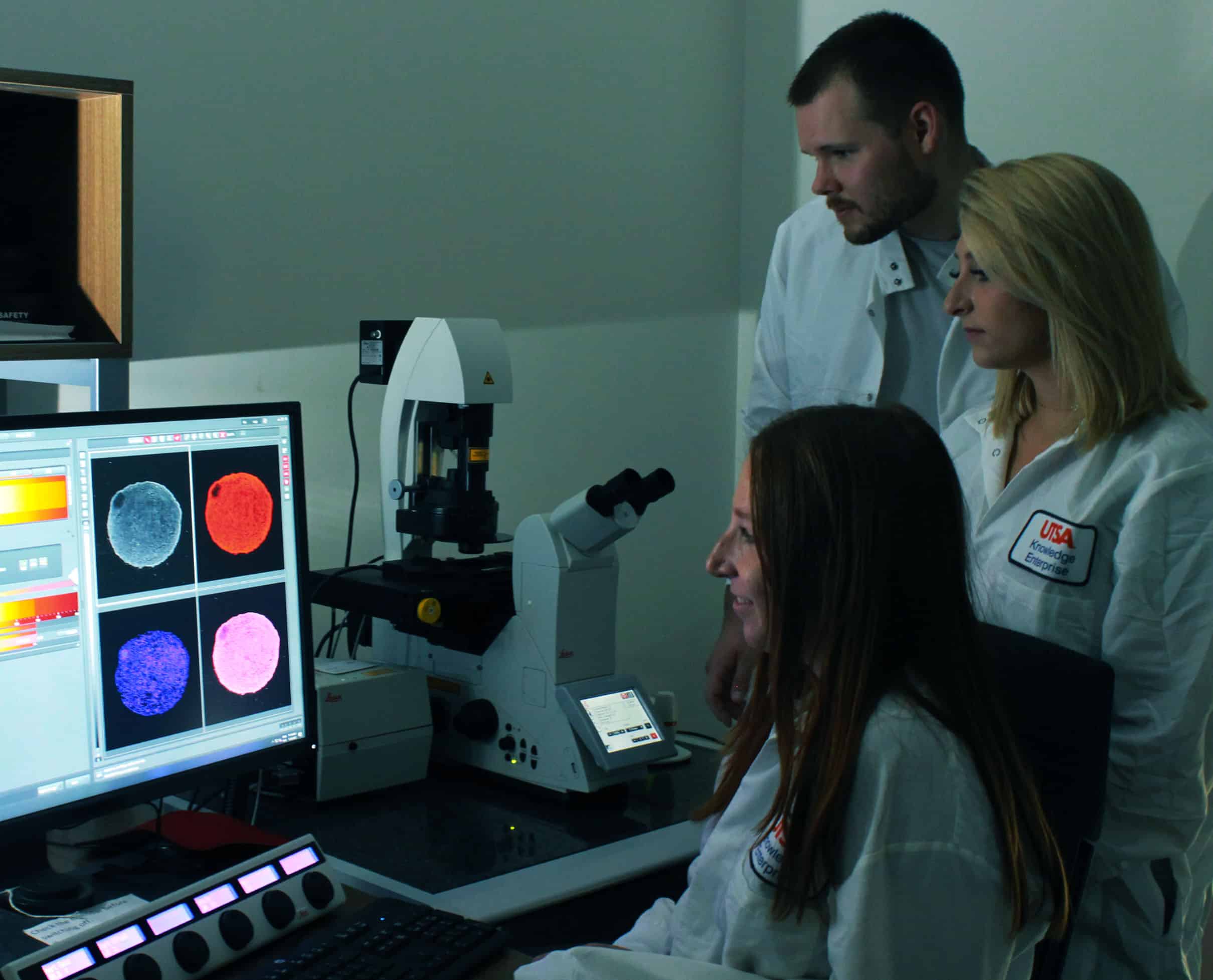Developmental & Regenerative Sciences PhD Program at UTSA
Research opportunities in state-of-the-art laboratories pursuing cutting-edge studies in basic, applied, clinical and biotechnology areas of Regenerative Medicine and Developmental Biology.

Program Highlights
- A structured curriculum that ensures efficient and productive matriculation through the program.
- A research-intensive, interdisciplinary training experience.
- Diverse laboratories with broad research interests in basic, applied, clinical, academic, biotechnology, and military-health research.
- 6 State-of-the Art Research Core Facilities featuring cutting-edge instrumentation and technologies.
- 32 Research Centers and Institutes.
- Students receive $35,000 stipend, full support of tuition and fees, health insurance.
- A nurturing environment that promotes student success.
- Emphases on excellence, integrity, inclusion, and diversity.
Areas of Study
The DRS program integrates a wide variety of specialized subtopics related to Regenerative Medicine and Developmental, Molecular, Cell, Reproductive and Neurobiology
What Makes Us Unique
& Career Development
Students select innovative dissertation research projects aligned with their particular interests to optimally prepare them for careers in academic, industry, clinical or government research settings.
Research
State of the art instrumentation in individual labs & research cores facilitates pioneering breakthroughs at the forefront of developmental and regenerative sciences.
Curriculum
A structured, 4-6 year matriculation plan ensures that students progress through the program efficiently and effectively, maximizing educational and research training opportunities.
Students previously enrolled in the UTSA Cell & Molecular Biology (CMB) PhD Program which has now given rise to the Developmental & Regenerative Sciences (DRS) PhD Program speak highly of their educational and training experiences. Many have moved on to postdoctoral positions at prestigious institutions such as the Gladstone Institute at UCSF, UCLA, PENN, the National Institutes of Health, and many others, leading to research-related careers in academic, industry, or government settings.
